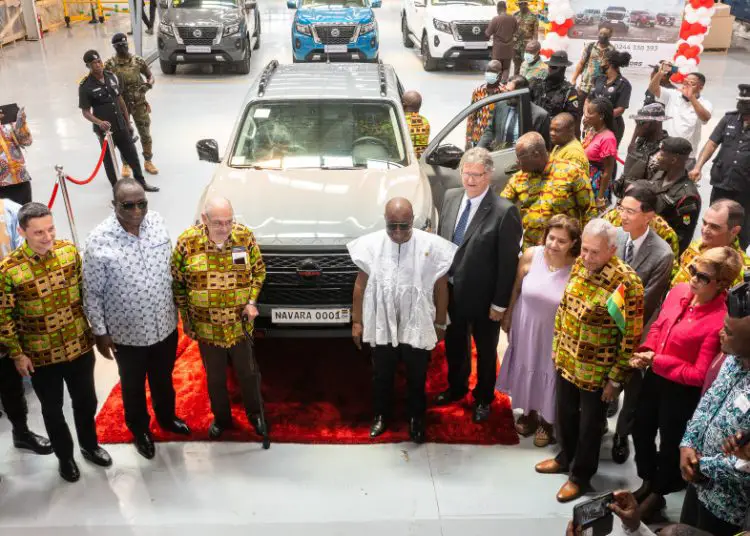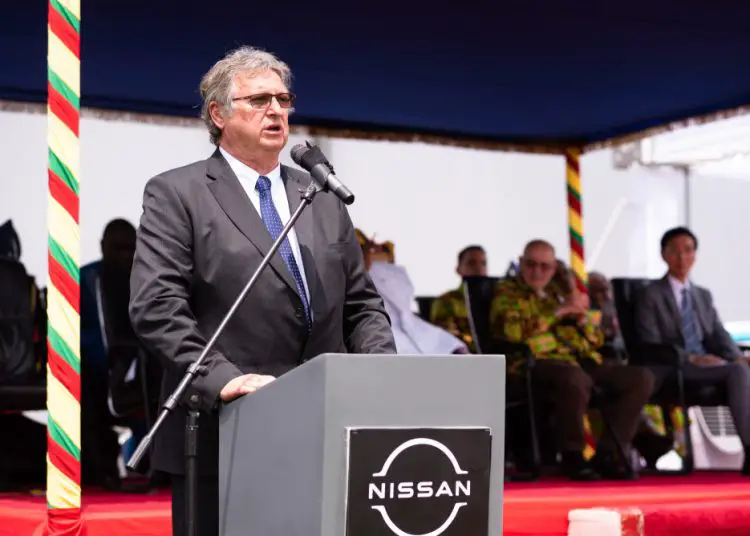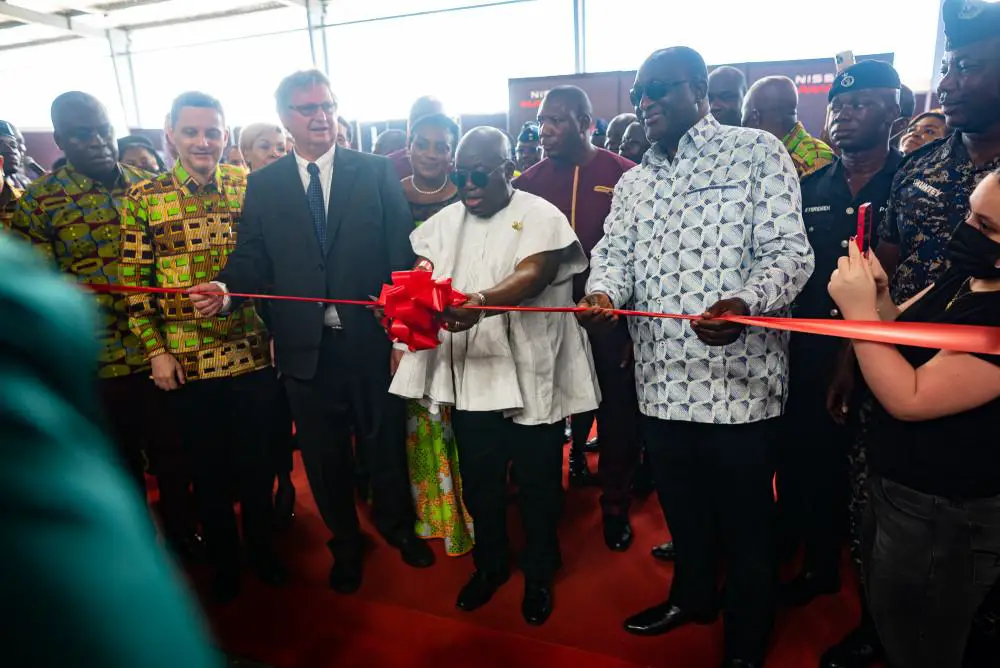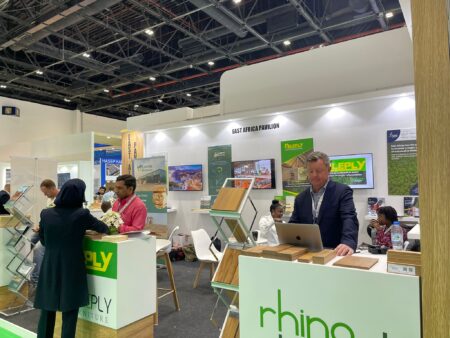- Nissan has opened a new state-of-the-art Navara assembly plant in Ghana
- This marks the second Nissan assembly plant after the Nissan plant in Rosslyn, South Africa
- Ghana imports over 100,000 vehicles yearly; 90 per cent of these are used vehicles, with an estimated value of US$1.14 billion annually
Nissan and Japan Motors have grown a keen interest in the automotive industry in countries among the largest economies in Africa.
The president of Ghana, Nana Addo Danquah Akufo-Addo, officially opened the brand-new state-of-the-art Nissan Navara assembly plant in Tema, Accra, on March 31, 2022.
This marks the second Nissan assembly plant after the Nissan plant in Rosslyn, South Africa.
Ghana and Nissan started their partnership together in 2018 when the latter became the first mover in the West African country to sign an MoU with the state to work towards creating the Ghana Automotive Development Policy.
Read: Faze Banks Net Worth | House | Cars | Girlfriend and Family
To help the company achieve this pinnacle of success in Ghana, Nissan selected Japan Motors, one of its two long-standing distributors in the country, as its licenced assembler in 2020.

Nissan Africa managing director, Mike Whitfield, said completing the assembly plant in Ghana was an incredibly joyous and emotional experience.
The South African Nissan Navara plant is among the Nissan assembly plants in Africa
The Nissan company is keen on investing in Africa’s big economies.
At the end of last year, the Nissan plant in Rosslyn, South Africa, passed its final test to be given the green light to start manufacturing the all-new ‘built of more’ Nissan Navara in the country. Shortly after, a key group graduated from this plant, receiving extensive and intensive training on assembling these vehicles.
“Just over a month ago, this brand-new assembly plant passed its final test – the same one that the Rosslyn plant had to pass because, in the world of Nissan, there is only one standard – it is Nissan’s, ” Mike Whitfield said. “I can tell you all that this is the most modern, most state-of-the-art plant anywhere in West Africa without any fear of contradiction.”
The plant, Whitefield said, was proof of the fantastic public-private partnership between the government of Ghana, Japan Motors and Nissan Africa.
He sited that the existence of the plant in Accra was a tribute to the passion and commitment of Japan Motors, investing US$9 million, an initiative which would not have been possible without the security and certainty offered by the government of Ghana’s progressive automotive industry development policy, signed into law in record time.
Read: Ghana partners German firm G+D in digital currency rollout
“Ghana today stands as a benchmark for the African automotive industry, an example of what can be done with a will and a vision,” Mike Whitfield said.
The Managing Director of Japan Motors, Salem Kalmoni, said the US$9 million investment was proof of his family’s commitment to the country and the government of Ghana in creating jobs and opportunities.
MD Kalmoni said he hoped that the government would now fully implement the Ghana Automotive Development Policy after identifying vehicle assembly and automotive component manufacturing as a strategic anchor industry for its Ten Point Plan for Ghana’s industrial development.
Whitfield paid tribute too to Nissan’s other distributor in Ghana, APL Nissan.

The Ghana Automotive Development Policy
The Ghana Automotive Development Policy aims at producing affordable new vehicles in the market of Ghana to reduce the weighty reliance on used vehicles, which creates environmental and safety hazards.
Ghana imports over 100,000 vehicles yearly; 90 per cent of these are used vehicles, with an estimated value of US$1.14 billion annually.
The development of Nissan assembly plants in Africa in reduces the value of imports and offers quality cars to the market.
The Ghana Automotive Development Policy seeks to change the dynamics to avoid importing unfriendly environmental and safety threatening cars.
Read: Ghana goes big on irrigation schemes, allocates US$105 million











